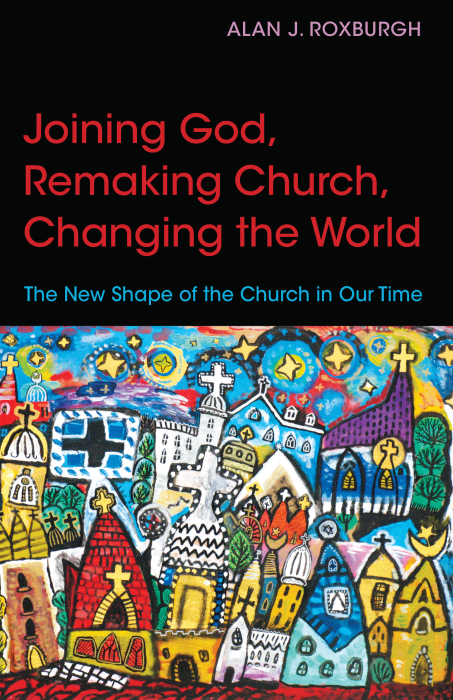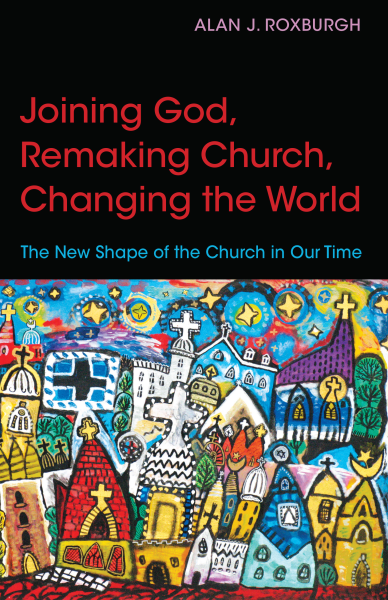Biblical Studies & Theology
Biography / Memoir
Church Supplies & Gifts
Curriculum & Faith Formation
En Español
Gender Studies / LGBTQ
Health and Wellness
Leadership
Liturgy & Worship
Prayer and Spirituality
Series
The Episcopal Church / Anglicanism
The Way of Love

Alan J. Roxburgh
Morehouse Publishing
Jul/2015, 128 Pages, Paperback, 5.5 x 8.5
ISBN: 9780819232113
Exhausted with trying to “fix” the church? It’s time to turn in a new direction: back to the Holy Spirit. In this insightful book, internationally renowned scholar and leader Alan Roxburgh urges Christians to follow the Spirit into our neighborhoods, re-engage with the mission of God, and re-imagine the whole enterprise of church. Joining God, Remaking Church, and Changing the World can guide any church—large or small, suburban or urban, denomination-level or local parish — to become a vital center for spirituality and mission.
Alan J. Roxburgh is a leader of The Missional Network. He leads conferences, seminars, and consultations with denominations, congregations, and seminaries across North America, Asia, Europe, Australia, and the United Kingdom. Roxburgh consults with these groups in the areas of leadership for missional transformation and innovating missional change across denominational systems. He is the author of many books, including Joining God (Morehouse, 2015). He lives in Vancouver, British Columbia.
"Alan Roxburgh offers deep hope and concrete steps forward for churches struggling with life in a post-Christian culture. By entering more deeply into the stories of the Bible, our own stories, and the lives of our neighbors, we join God’s life in the world. This is one of the most helpful books I have read, full of clear analysis and practical wisdom." —Dwight Zscheile, associate professor of congregational mission and leadership at Luther Seminary and author of People of the Way and The Agile Church
"Joining God invites you to embark on the journey you always wanted to take. In this book you will find: Courage: Alan Roxburgh is unafraid to admit the unraveling of what we’ve been and calls us to move into new places. Faith: The Spirit is going ahead of us into our neighborhoods. Ancient/future: The answer isn’t flashy promotions but deeper discipleship and community. Hope: When we dare to move outside our walls, we’ll find work to do and our calling renewed."—Philip Clayton, scholar, activist and author of Transforming Christian Theology
"Drawing on his years of experience with missional church theology and practice, Roxburgh outlines our attempts to end church decline and opens up fresh vision: What if the unraveling of the church is God’s way of leading us out of bondage to American culture into God’s new Exodus? What if God is inviting us to shift our focus and to discern and join God’s presence and work in our neighborhoods? This book outlines practical steps congregations can embrace to experiment with this new/old way of living the Gospel locally. Engaging these practices will not be easy. And learning from God and neighbors how to participate in local missional experiments might actually transform both congregations and society. Don’t just read this book … gather a group to experiment with this “way” in practice!"—Gordon Scruton, Retired Bishop of the Diocese of Western Massachusetts
"Drawing on his work as a consultant, researcher, sociologist and teacher, Roxburgh invites congregations to build bridges between their churches and their neighborhoods. He outlines a way for congregations to reclaim their apostolic roots, a process that is rooted in scripture and grounded in prayer. His is a challenge to be faithful to the Gospel and to reap the benefits of commitment and creativity."—Mark Beckwith, Bishop of the Diocese of Newark

